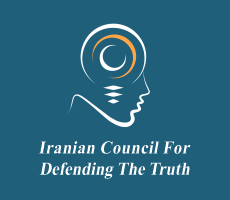It is difficult to draw firm conclusions about cause and effect in international relations as there are many factors interacting at that same time. It seemed clear that the Islamic Revolution posed a challenge to Western vital strategic and economic interests that were tied closely to the Shah’s regime. It should be remembered that Henry Kissinger reminded the world that the Shah was “that rarest of things, an unconditional ally.” More broadly, the Islamic Revolution created the perception that the U.S. had a new adversary in the Middle East additional to, and perhaps more threatening, than the Soviet Union and the ideology of Marxism/Leninism. Its regional policies had previously emphasized, other than the containment of Soviet influence, access to oil at affordable prices and the security of Israel. This belief in Iran as a strategic threat was interpreted in the West as an ideological threat, as well, giving rise to Islamophobia that reached its peak in the United States after the 9/11 attacks in 2001 on the World Trade Center and Pentagon, primary symbols of American economic and military power.
Imam Khomeini reinforced Western and regional anxieties by his insistence that the transformation of Iran was an ‘Islamic Revolution,’ nor a ‘Iranian Revolution’ or a ‘Sunni Revolution,’ implying strong concerns beyond the borders of Iran. Such a sentiment had an electrifying and mobilizing effect on Islamic thought and action throughout the Arab world, and recreated the idea that territorial states within enclosed borders were a European conception of community imposed on the Middle East after World War I, and the collapse of the Ottoman Empire. Nationalist thinking and organization inauthentically displaced the primary existential community of shared adherence to Islamic beliefs, the umma. Such an interpretation of community undermined the legitimacy of many governments in the Arab/Islamic context that relied on nationalist and secular sources of legitimacy while actually serving the interests of the West.
The Western views of the Khomeini impact were highlighted by such phrases as regarding Islamic countries as the new ‘arc of crisis,’ or more memorably as ‘the clash of civilizations,’ the sequel to the Cold War, and the basis for a new phase of ideological and geopolitical confrontation.
The Israeli dimension of the effects of the Islamic Revolution in Iran should not be overlooked. Israel was regarded as an alien force in the region, anti-Islamic, secular, and a lingering remnant of the colonial era. For the West it was an outpost of enlightenment, modernity, and shared goals, and after the fall of the Shah the became the leading strategic ally of the United States, a relationship that continues to haunt the region with intervention and political violence, as well as the denial of basic rights to the Palestinian people in their own homeland.
Before the Iranian developments in 1978-79, the Middle East in particular was governed by authoritarian regimes that were on one side or the other of the Cold War rivalry between the U.S. and the Soviet Union. Many regional leaders in the Islamic world were fearful of the Islamic orientation of their own people, portraying Islam as anti-modern and an enemy of progress, and potentially threatening to the economic elites bonded with international capitalism. The Shah’s Iran typified this orientation and exhibited an acute form of civilizational alienation.
Imam Khomeini arrived on the political scene with a different vision of a political community animated by the resurgence of Islam as tradition and the foundation of ethically grounded governance. Because Iran faced counterrevolutionary threats from within and without, the governing challenges in Iran gave priority to protecting the revolution from its enemies, with a harshness often relied upon by the West to contend that the Islamic Revolution was a regressive development, a view encouraged by many of the Iranians who fled the country for various reasons. It is notable that these harsh tactics allowed the Islamic Revolution to survive and evolve, and contrasts with the experience of other efforts to achieve transformation, even reform, in Islamic countries, for instance, Egypt. The achievement of the Islamic Revolution is to persist in such a hostile environment suggests the skills of its leaders and the support of the great majority of its people.
Whereas before the Islamic Revolution support for the Palestinian struggle was pragmatic and opportunistic, while afterwards identification with Palestine became a matter of fundamental principle and a source of authentic identity. The Islamic Republic of Iran, no matter what pressures it was subjected to during the last four decades, has never wavered in support for the rights of the Palestinian people.
Such speculation is difficult to be sure about as many forces were at work, but certainly the Islamic Revolution was one factor that altered the character of the struggle over the future of Palestine. From an Israeli perspective, Iran posed an increasing threat not only to its internal security and nationalist claims of legitimacy, but also to its regional and expansionist ambitions. At the same time, Iranian hostility to Israel reinforced Western hostility to the Islamic Republic. It also had the effect of leading the Persian Gulf countries, with the exception of Qatar, to believe that their own legitimacy and stability was more threatened by the Islamic Republic than by Israel. These regimes, led by Saudi Arabia, also emphasized sectarian identities, insisting that only Sunni Islam was the true faith and that Shi’ia Islam was a deviation. At the same time, these Arab elites became persuaded that their rivalry throughout the Middle East with Iran was their primary concern, shared with Israel (and the United States), and that tensions and opposition to Israel no longer served governmental interests despite the persisting identification of their citizens with the Palestinian struggle. The climax of this revision of priorities became evident when the anti-Iran diplomacy was recently signaled to the world by the normalization agreements reached with several Arab countries, encouraged by others, and celebrated as a triumph of Trump’s pro-Israel foreign policy.
The Palestinian movement for self-determination was always viewed as problematic, and potentially dangerous, by the top-down governing processes in Iran and throughout the Arab world. Any bottom-up popular democratizing movement, epitomized by the Islamic Revolution in Iran and later by the rise to power of the Muslim Brotherhood in Egypt, was opposed by these repressive government scared of their own people. The Palestinian movement was deemed threatening in two of its dimensions—as putting forth political demands from below (a polar opposite from dynastic claims to rule from above, and so condition the role of Islam) and as challenging the links to the West to sustain internal security through weaponry and counterinsurgent tactics.
I think Imam Khomeini did give the Palestinian struggle a higher status than it had earlier possessed, particularly within the region, it became a matter of ethics, not just politics. His emphasis on Palestinian self-determination, the illegitimacy of the Zionist Project, was treated as a fundamental commitment of the Islamic Republic from its inception, and Israel was viewed as a distinctly Western challenge to the prevalence of his sense of the Islamic community of peoples. In the course of my meeting with Imam Khomeini he made very clear that in his view of the illegitimacy of a Jewish state based on claims of ethnic superiority coincided with his great respect for Judaism as an authentic religion. He expressed his hope at that time in 1979, that the Jewish minority in Iran would disentangle itself from identification with and support for Israel and the Zionist Project, and if this happened, he declared his view that it would be a tragedy for Iran if Jews did not remain in the country after the revolution.
This distinction between Israel and Judaism is crucial, and is the opposite of what the Israeli leadership and its more militant followers want the world to believe, which is that Israel, Jewishness, and Zionism are one, and that any criticism of Israel necessarily exhibits a form of anti-Semitism. Recently, the world respected Israeli human rights NGO issued a report that confirmed the view that Israel was an apartheid stated, premised on the efforts to make Israel ‘a Jewish supremacy state.’ As apartheid in any form is an international crime, listed as a Crime Against Humanity, in Article 7(j) of the Rome Statute governing the framework of the International Criminal Court in The Hague, the views of Imam Khomeini accord with basic principles of law and justice on this crucial matter of distinguishing between the State of Israel and the Jewish people.
I believe it is correct that the failure of the United States to overcome Iranian resistance to its destabilization and counterrevolutionary efforts is viewed as one dimension of American imperial decline. Military intervention and even coercive diplomacy by way of sanctions and threats is far less effective than in the colonial era, and is unable to control the political outcomes of many internal struggles for the control of States. It has contributed to what is generally viewed as a much more multipolar world. New patterns of alignment are emerging globally and regionally. The Biden presidency will try to restore the Cold War Euro-centric pattern of alliances, with China as the new principal rival, with Russia also on the outside looking in.
There are many uncertainties in all domains of international life that will reshape world order in coming years. Of especial importance will be the management of climate change, health hazards, and global economic policy. There are several lines of uncertainty, including whether a new form of ideological tension arises and inhibits global cooperative problem-solving. There is a need for stronger institutional mechanisms at all levels of political interaction to safeguard and promote the global public good. The United Nations could be reformed to play a more central role in moderating diversities of interests and values, while protecting the sovereign rights of States and extending a greater effort to impose UN Charter Principles on the five Permanent Members of the Security Council. The UN would benefit for greater funding independence and less tolerance for geopolitical impunity.

